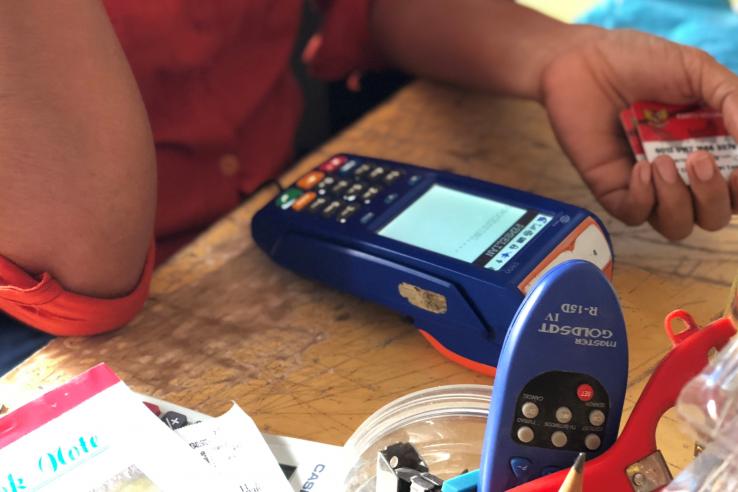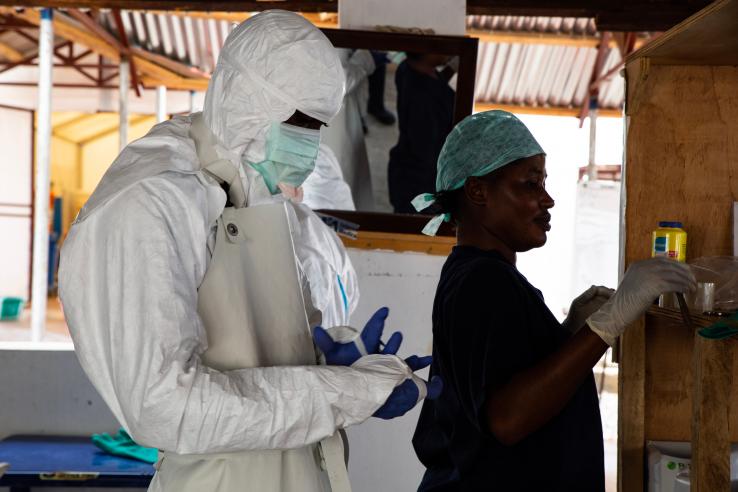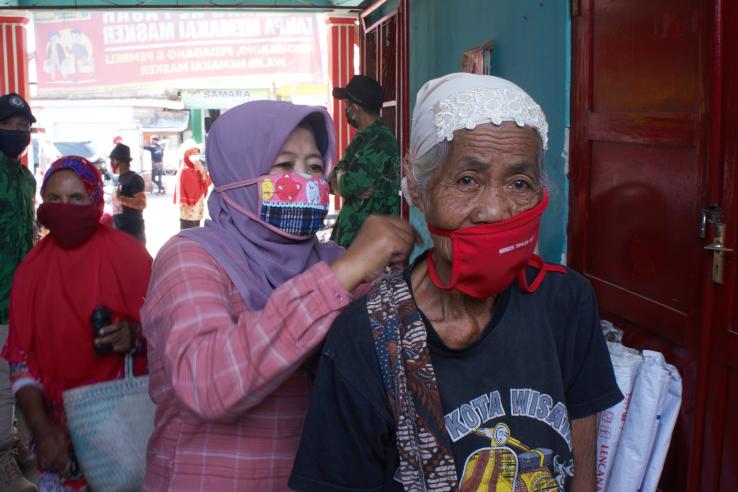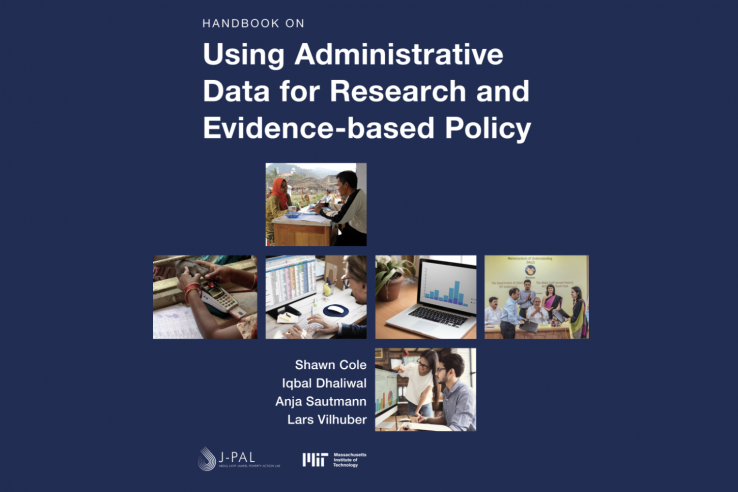Displaying 2491 - 2505 of 8318
Event
Join J-PAL Southeast Asia for a webinar to launch the Inclusive Financial Innovation Initiative (IFII). To kick off this learning collaborative, key findings from the initiative's whitepaper will be shared to inform digital financial services (DFS) stakeholders and policy decisions.
Person
John Floretta has been the Global Deputy Executive Director of J-PAL since 2020 and is also Co-Chair of the Evidence to Scale Initiative. He works with J-PAL's Executive Director to set J-PAL's strategic vision and collaborates closely with the leadership of the seven regional offices. He directs...
Evaluation
Researchers partnered with the Government of Sierra Leone to evaluate the impact of community monitoring and nonfinancial awards programs on health care utilization and health outcomes. Both programs improved clinic utilization, patient satisfaction, and symptom reporting during the 2014 Ebola crisis. Further, community monitoring improved child health and reduced mortality among Ebola patients.
Person
Laura Schechter is the Vilas Distinguished Achievement Professor at the University of Wisconsin, Madison. Her research looks at how social preferences impact economic outcomes in low- and middle-income countries and how they can be harnessed to improve outcomes. Laura has researched how to measure...
Person
Jonas Hjort is a Professor of Economics at University College London. His research studies private firms and public-sector organizations in developing countries.
Person
Pamela Jakiela is a Professor of Economics at Williams College, where she studies gender issues, behavioral development economics, survey design and measurement, and impact evaluation.
Person
John A. List is the Kenneth C. Griffin Distinguished Service Professor in Economics at the University of Chicago. His research focuses on questions in microeconomics, with a particular emphasis on using field experiments to address both positive and normative issues.
Event
J-PAL Southeast Asia’s Scientific Directors Rema Hanna and Benjamin A. Olken will present evidence-based insights on how to strengthen safety nets to protect the poor during COVID-19. The webinar will also feature Indonesia’s Deputy Minister of Finance to discuss how lessons from evidence presented...
Evaluation
Researchers evaluated the impact of its science and technology teacher training program on the educational interests and academic achievement of affected students. Student outcomes improved in the short-run during the year the teacher received the training and worsened in the year after teachers received the training.
Event
Join the webinar series hosted by the IDEA Initiative on Mondays at 11am EDT during the Fall 2020 semester, starting on 9/28/2020. In this series the authors of the Handbook on Using Administrative Data for Research and Evidence-Based Policy will present case studies on successful administrative...
Evaluation
In Niger, researchers conducted a randomized evaluation to test the impact of providing training and conditional or unconditional cash transfers on farmers’ adoption and use of an environmental technology, their resulting land use, agricultural production and profitability, and labor allocation. Providing farmers with training led to a substantially higher probability of adopting the technology, while the conditional or unconditional cash transfers had no additional effect on farmers’ decision to adopt.
Person
Alicia Sasser Modestino is an Associate Professor with appointments in the School of Public Policy and Urban Affairs and the Department of Economics at Northeastern University, where she also serves as the Research Director of the Dukakis Center for Urban and Regional Policy. Her current research...
Evaluation
Researchers introduced a soft skills component into a vocational training program in the Dominican Republic to assess the interaction between job and soft skills training on labor market outcomes and expectations. Women experienced increased employment rates and wages in the short term, which dissipated over time; men, on the other hand, experienced negative or no impacts on employment rates and wages in the short term, and no effects in the long term.
Evaluation
Researchers conducted a randomized evaluation to measure the impact of an academic tutoring and career counseling program designed to reduce educational inequalities between native-born and immigrant children. Can tutoring and career counseling help improve the educational outcomes of high-ability immigrant students? Results showed that offering tutoring and career counseling closed the educational gap between native-born and immigrant boys in Italy.







